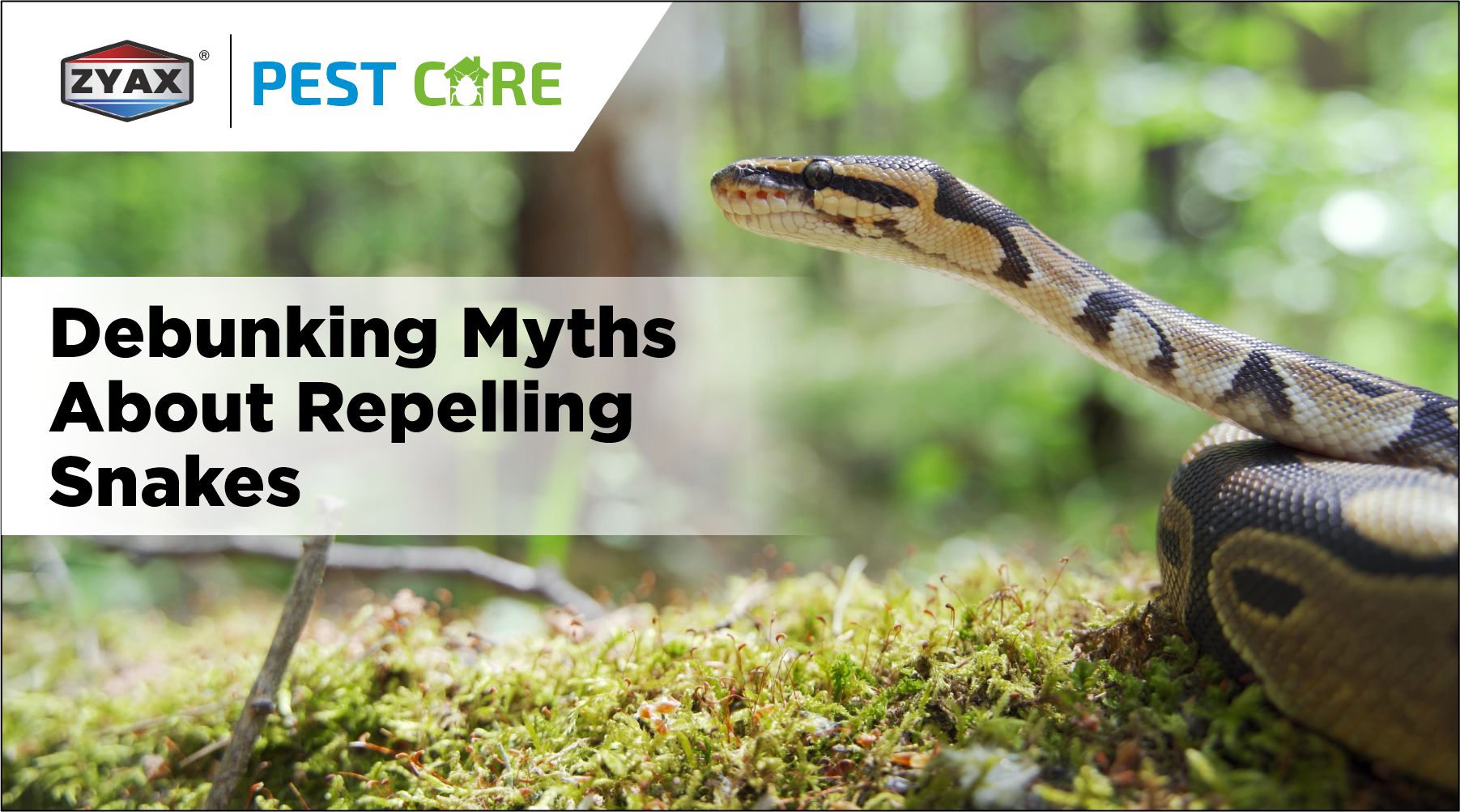In many regions, snakes are among the most frequent backyard visitors that can easily enter your home surroundings, gardens, garages, barns, swimming pools, woodpiles, etc. They can cause serious harm to children and pets as snakes bite. Thus, many myths have developed around various snakes types. While most people try to avoid encountering snakes, some myths about repelling snakes can actually do more harm than good. Unfortunately, many such myths have contributed to fear and misinformation about these reptiles.
In this blog post, we'll debunk some of the most common myths about repelling snakes and provide you with accurate information to help keep you safe.
Myth #1: Mothballs repel snakes
One of the most persistent myths about repelling snakes is that mothballs are an effective deterrent. Snakes have a highly developed sense of smell, but the scent of mothballs is unlikely to deter them. People often place mothballs around their property or crawl spaces to keep snakes away. While it's true that mothballs contain a chemical called naphthalene, which is toxic to snakes, the concentration of naphthalene in mothballs is not strong enough to be an effective repellent. There is no scientific evidence to support the claim that snakes are repelled by the smell of mothballs. In fact, mothballs are toxic to humans and pets and can pose a serious health hazard if ingested.
Myth #2: Snake Plants & Marigold repel snakes
Another popular myth is that certain plants, such as snake plants or marigolds are snake repellent plants. Snakes are attracted to warm-blooded prey, not plants. While these plants may have a strong scent that could mask the smell of the prey and potentially discourage reptiles, snakes won't likely be deterred by them. It is also believed that the sharp structure of snake plants looks dangerous to the snake and helps scare them away, but snakes have poor eyesight which makes it difficult to see anything around. Thus, there is no proof of the effectiveness of these plants in repelling the snakes.
Myth #3: Ultrasonic devices repel snakes
Many ultrasonic devices on the market claim to repel snakes with high-frequency sound waves. Snakes have a low hearing capacity for airborne sounds, and even if they could hear them, there is no reason to believe that they would be repelled by them. They can only hear vibrations transmitted through the ground. Ultrasonic devices do not produce the vibrations that snakes can detect. Thus, stick to proven methods like keeping your surroundings & yard clean and free of debris, sealing up any potential entry points, and using snake-proof fencing & snakes repellent spray as necessary.
Myth #4: Snakes can't cross a line of salt
Another popular myth about repelling snakes is that they cannot cross a line of salt. Many people use salt thinking it will block the entry of the snake. While it's true that snakes don't like the sensation of salt on their skin, there is no evidence to suggest that they cannot cross a line of salt. Moreover, salt can be harmful to soil and plants, and overusing it can lead to soil degradation.
The Pest Hack Recommendation:
The easiest way to repel snakes is by opting for a non-toxic snake repellent spray. Zyax’s Snake Maxx acts as a powerful snake repellent that effectively fends off the snakes. It is biodegradable, does not affect the gardens or plants and poses no risk to children and pets.
Cinnamon oil, clove oil, and eugenol have been proven in studies to be excellent snake repellent. Most effective snake repellent Snake Maxx spray consists of the above ingredients as well as cedar oil, fuller’s earth, etc., which make it very safe for you and your family. It does not kill or harm the snakes. Instead, snakes will retreat or repel when Snake Maxx snakes repellent is applied to the areas that need to be protected as they find the smell unpleasant.
In conclusion, while there are many myths about repelling snakes, the truth is that there are no magic potions or plants that can keep snakes away. In general, the most effective way to keep snakes away is to remove their food sources and habitats. This can be done by keeping your property clean and free of debris, sealing up any holes or gaps in your home or yard, and keeping food sources under control. If you encounter a snake, it is best to leave it alone & call a professional for removal.

